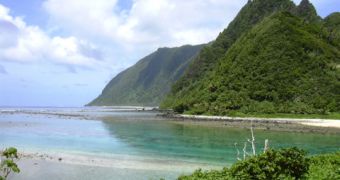While most studies and debates focus on how climate change and global warming impact on various natural ecosystems, it seems that one very important consequence of said global phenomena keeps getting forgotten.
We are referring to how these changes in the natural world almost always end up affecting the traditional lifestyle of indigenous cultures.
In plain words: these communities live in close proximity to the environment, and directly depend on it if they are to make a living.
Therefore, whatever upsets the natural balance of our planet's ecosystems will turn around and disrupt the general peace and quiet of these small cultural groups.
However, the good news is that during this year's First Stewards symposium, whose sessions officially began just yesterday, native leaders and climate scientists are to discuss precisely this issue.
Special emphasis will be placed on how ever-increasing levels of pollution and global warming lead to extreme weather manifestations which flood these tribes' territories and destroy their hunting grounds.
This can and should strike people as a bit paradoxical: such indigenous communities live in harmony with nature and do almost nothing to harm it, yet they somehow end up experiencing the severe consequence of modern society's heavily industrialized ways.
The US National Oceanic and Atmospheric Administration (NOAA) informs us that American Indians, Alaska Natives and Pacific Islanders, together with representatives of various green-oriented organizations, are expected to come up with ways of allowing these indigenous communities to actively take part in environmental protection.
The main idea is that, because they live so close to the natural world, these people know much more about it than we ever will, and therefore can help us in our ongoing fight to turn towards sustainable development.
Daniel J. Basta from NOAA makes a case of how “Coastal indigenous people have thousands of years of rich, place-based knowledge of climate change and its effects on humans, and how to adjust to these changes. Their experience is extremely valuable today and can help all of us as the world looks for ways to adapt.”

 14 DAY TRIAL //
14 DAY TRIAL //